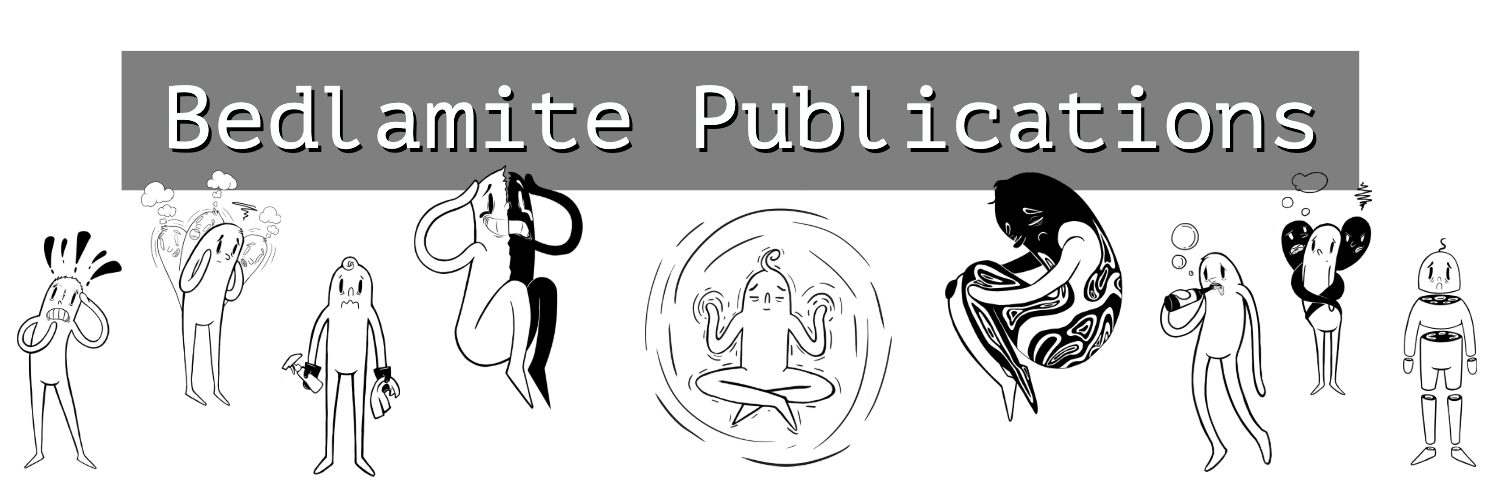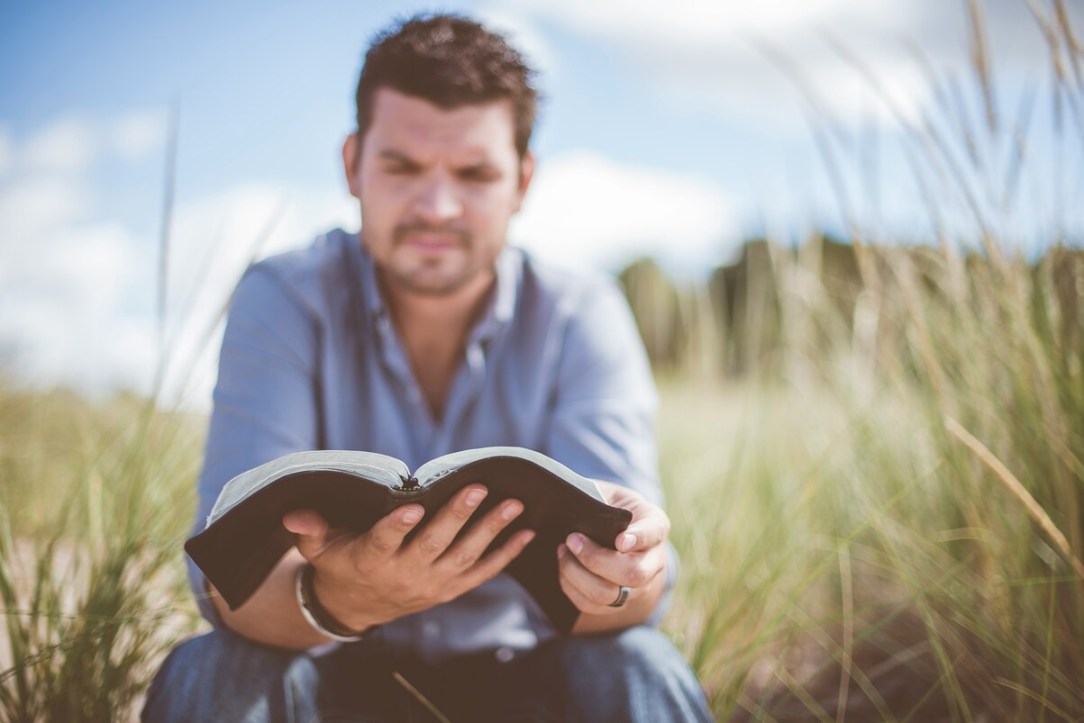Anxiety disorders are marked by excessive worry and feelings of fear, dread, and uneasiness. As a result, this can make daily life and emotional processing difficult. ¹
While treatment is essential, developing your own coping strategies can help alleviate anxiety’s complications. Before you jump into these techniques, it’s important to understand the difference between positive and negative strategies. For example, a negative one would be using drugs or alcohol as a means of self-medicating. Positive techniques, on the other hand, will allow you to:
- Change any negative thought patterns into positive ones
- Develop self-care tactics to improve upon daily
- Process emotions
Throughout this article, we’ll look at 11 anxiety coping mechanisms for you to implement.
1.) Write in a Journal
With anxiety treatment, you may have been recommended to write down your thoughts and feelings. By doing so, you’re doing more than just taking notes. You’re documenting an entry of your thoughts and emotional processing. This allows you to understand why or how you feel the way you do. Through this knowledge, you’re giving yourself the ability to grow. ²
2.) Eat Well
Research reveals that your diet is strongly linked to your emotions. In other words, those who eat well are happier than those with unhealthy diets. ³ To overcome anxiety, it can help to start incorporating more nutritious meals into your diet. These may include: ⁴
- Almonds
- Blueberries
- Chamomile
- Dark chocolate
- Eggs
- Green tea
- Salmon
- Turmeric
- Yogurt
If you struggle with diet, it may help to map out your weekly meals. You can incorporate our list above or foods high in nutrients that benefit anxiety. For example, foods with zinc and/or magnesium have been found to lower anxiety levels and calm people and animals down. ⁵ While foods high in probiotics may help those with a social anxiety disorder. ⁶
3.) Exercise Regularly
With a healthy diet, exercise is a great way to reduce symptoms of anxiety and stress. Part of the reason is physical activity naturally releases endorphins (feel-good chemicals) within your brain. ⁷ The other reason is that an exercise routine makes you feel accomplished. It gives you a routine and triggers the reward system of your brain.
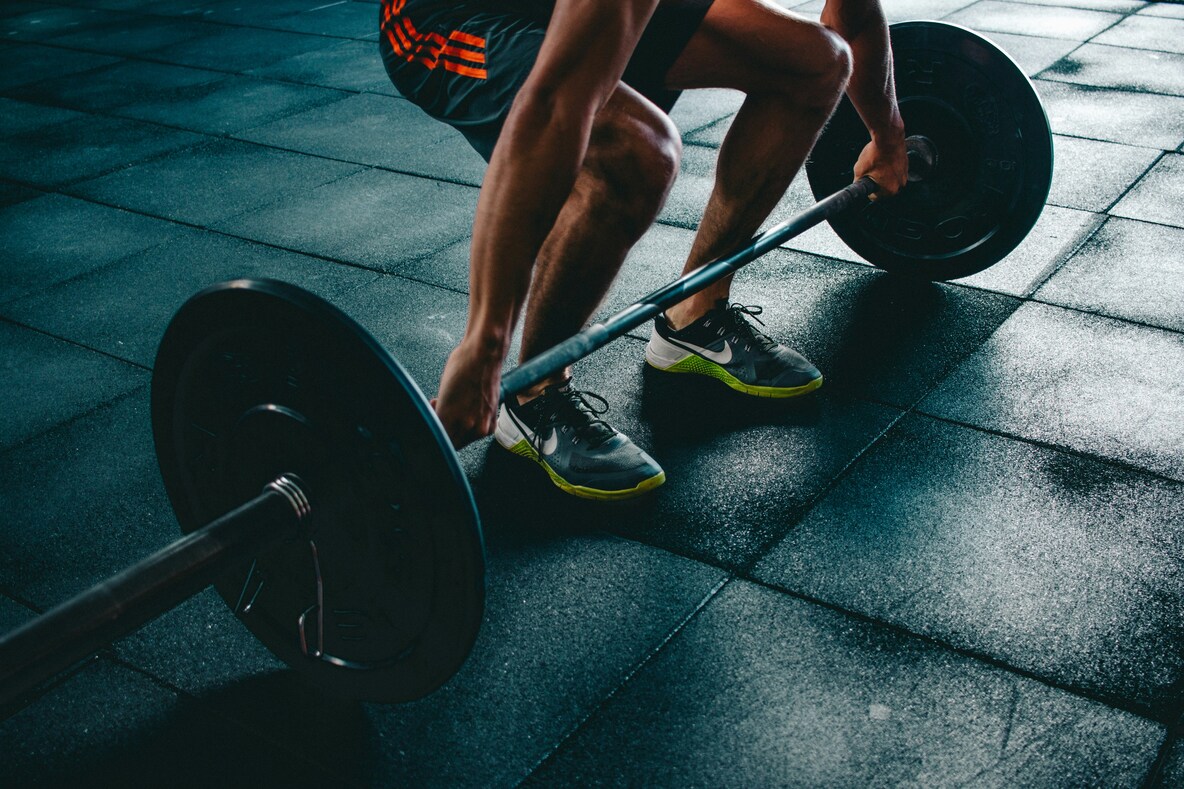
4.) Take Up Meditation or Yoga
Both meditation and yoga are great ways to exercise our thought patterns. These techniques allow you to better understand your emotional process and make improvements. ⁸ Many people who receive anxiety treatment have been using meditation and yoga as a complementary therapy (or alternative medicine).
5.) Read Regularly
A good book can do just as much as a meditation session. It gives you time to relax and work your brain. While there are many books to read, we suggest those that cover mindfulness and self-improvement.
6.) Spend Time in Nature
Anxiety levels have spiked alongside technological progress. Some mental health professionals speculate this rise in anxiety might have to do with society’s retreat from nature. ⁹ On top of that, spending time outside can improve moods and relieve stress. ¹⁰ There are several different outdoor activities you can take up, including:
- Going fishing
- Having a picnic
- Riding a bike
- Taking a walk in the park
7.) Clean Your Living Space
Your environment plays a HUGE role in how you process emotions. Ever had a bad roommate that drove you nuts day in and day out? The same concept can be associated with a messy living space. For people with anxiety, it’s suggested to clean your environment. A clean, de-cluttered apartment or house can make you feel more organized and controlled. ¹¹
8.) Spend Time with Family and Friends
To handle anxiety, you must have a strong support system. Family or friends will help you through your difficult moments. Even when you’re not experiencing difficulties, being around loved ones can do wonders for the brain and make you feel less lonely. ¹²
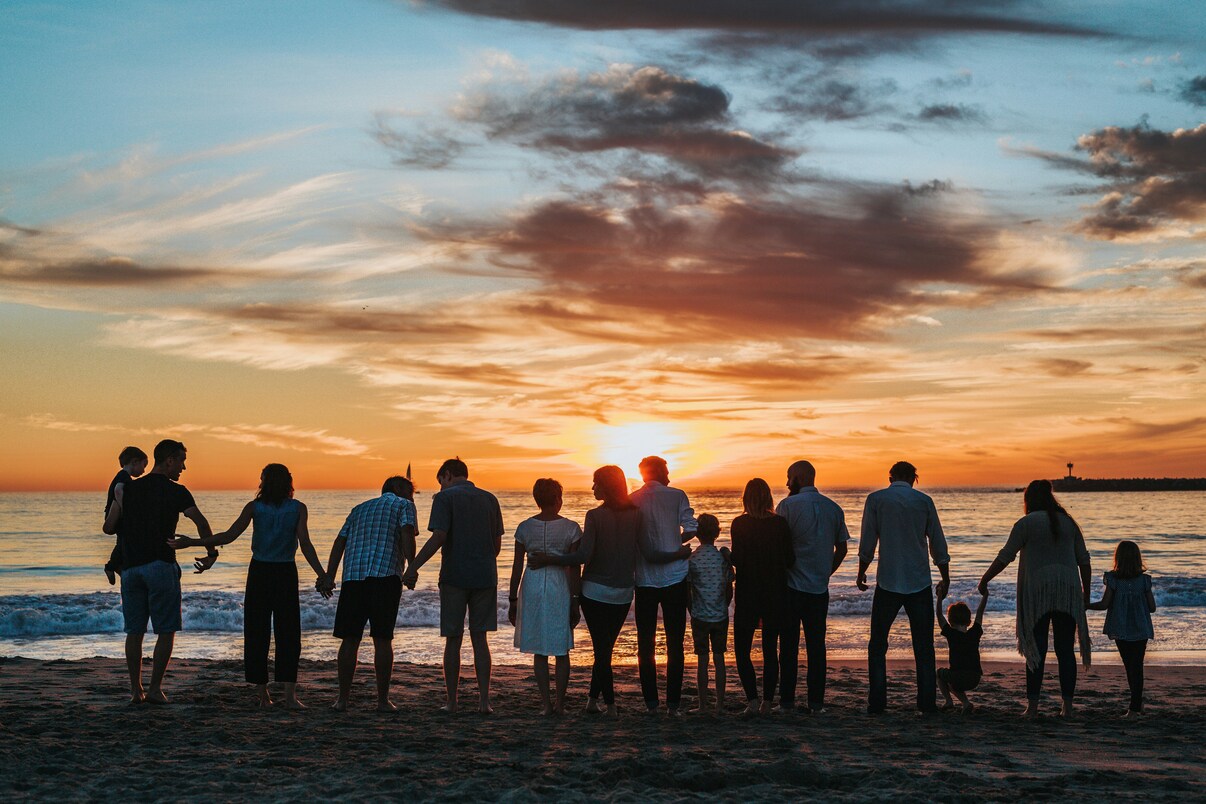
9.) Take Vacations
We live in a hustle-and-bustle society. Though hard work can benefit your mental health (it allows you to follow your passions), it’s just as vital to take a step back from these efforts. Whether you’re taking a break for a day or a week, we all need regular vacations.
Since all our minds work differently, there’s no universal answer to the quality and quantity of vacations you should take. However, there are signs to keep an eye out for. For example, if you currently have a lot of stress, it may be time to take a holiday. Even a short vacation can do wonders for stress levels. ¹³
10.) Pick Up a Mindful Hobby
With so many positive mindful hobbies, we could write a whole article on the topic. However, some of the most popular for anxiety include:
- Cooking
- Gardening
- Group activities
- Learning a new language
- Playing an instrument
- Sculpting and pottery
- Volunteering
- Writing
If you’re unsure where to start, we encourage you to experiment around! Even if you don’t enjoy something, participating in new leisure activities is a great way to get your mind off stress. ¹⁴
11.) Practice Certain Life Philosophies
Certain life philosophies and thinking practices may help ease the negative cycle of anxiety. These include:
- Acceptance of the fact that you have anxiety and it puts you at a disadvantage to people who don’t have it. While this may not seem fair, understanding your situation gives you more flexibility to make impactful decisions.
- Compassion for yourself and those around you. Anxiety can sometimes make us judgemental and critical of others. If we step back to see people from where they come from, we may better understand how to treat others and ourselves.
- Gratitude for what you already have. It also helps to spend less time considering what you don’t have.
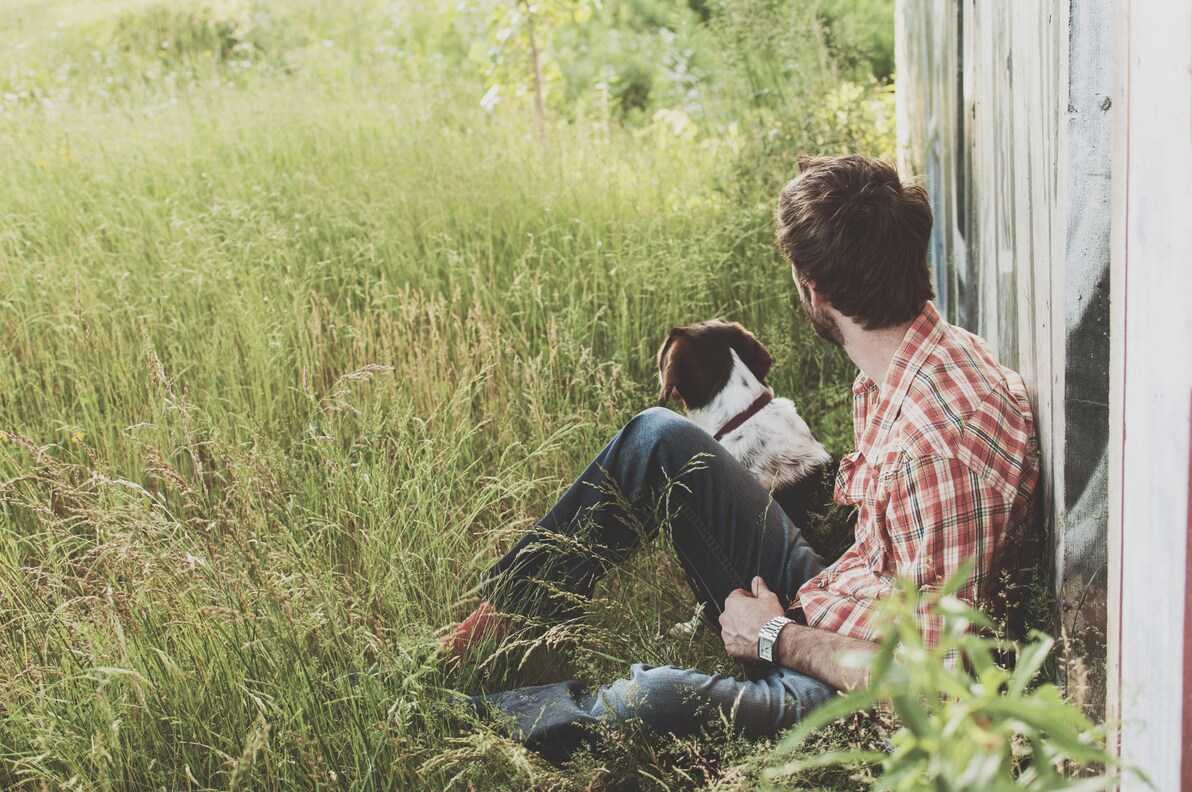
References
¹ Penninx BW, Pine DS, Holmes EA, Reif A. Anxiety disorders. Lancet. 2021 Mar 6;397(10277):914-927. doi: 10.1016/S0140-6736(21)00359-7. Epub 2021 Feb 11. Erratum in: Lancet. 2021 Mar 6;397(10277):880. PMID: 33581801; PMCID: PMC9248771.
² Smyth JM, Johnson JA, Auer BJ, Lehman E, Talamo G, Sciamanna CN. Online Positive Affect Journaling in the Improvement of Mental Distress and Well-Being in General Medical Patients With Elevated Anxiety Symptoms: A Preliminary Randomized Controlled Trial. JMIR Ment Health. 2018 Dec 10;5(4):e11290. doi: 10.2196/11290. PMID: 30530460; PMCID: PMC6305886.
³ Grajek M, Krupa-Kotara K, Białek-Dratwa A, Sobczyk K, Grot M, Kowalski O, Staśkiewicz W. Nutrition and mental health: A review of current knowledge about the impact of diet on mental health. Front Nutr. 2022 Aug 22;9:943998. doi: 10.3389/fnut.2022.943998. PMID: 36071944; PMCID: PMC9441951.
⁴ Aucoin M, LaChance L, Naidoo U, Remy D, Shekdar T, Sayar N, Cardozo V, Rawana T, Chan I, Cooley K. Diet and Anxiety: A Scoping Review. Nutrients. 2021 Dec 10;13(12):4418. doi: 10.3390/nu13124418. PMID: 34959972; PMCID: PMC8706568.
⁵ Boyle NB, Lawton C, Dye L. The Effects of Magnesium Supplementation on Subjective Anxiety and Stress-A Systematic Review. Nutrients. 2017 Apr 26;9(5):429. doi: 10.3390/nu9050429. PMID: 28445426; PMCID: PMC5452159.
⁶ Wallace CJK, Milev R. The effects of probiotics on depressive symptoms in humans: a systematic review. Ann Gen Psychiatry. 2017 Feb 20;16:14. doi: 10.1186/s12991-017-0138-2. Erratum in: Ann Gen Psychiatry. 2017 Mar 7;16:18. PMID: 28239408; PMCID: PMC5319175.
⁷ Anderson E, Shivakumar G. Effects of exercise and physical activity on anxiety. Front Psychiatry. 2013 Apr 23;4:27. doi: 10.3389/fpsyt.2013.00027. PMID: 23630504; PMCID: PMC3632802.
⁸ Edenfield TM, Saeed SA. An update on mindfulness meditation as a self-help treatment for anxiety and depression. Psychol Res Behav Manag. 2012;5:131-41. doi: 10.2147/PRBM.S34937. Epub 2012 Nov 23. PMID: 23175619; PMCID: PMC3500142.
⁹ Teepe GW, Glase EM, Reips UD. Increasing digitalization is associated with anxiety and depression: A Google Ngram analysis. PLoS One. 2023 Apr 7;18(4):e0284091. doi: 10.1371/journal.pone.0284091. PMID: 37027368; PMCID: PMC10081798.
¹⁰ Pearson DG, Craig T. The great outdoors? Exploring the mental health benefits of natural environments. Front Psychol. 2014 Oct 21;5:1178. doi: 10.3389/fpsyg.2014.01178. PMID: 25374550; PMCID: PMC4204431.
¹¹ Riva A, Rebecchi A, Capolongo S, Gola M. Can Homes Affect Well-Being? A Scoping Review among Housing Conditions, Indoor Environmental Quality, and Mental Health Outcomes. Int J Environ Res Public Health. 2022 Nov 30;19(23):15975. doi: 10.3390/ijerph192315975. PMID: 36498051; PMCID: PMC9736414.
¹² Wickramaratne PJ, Yangchen T, Lepow L, Patra BG, Glicksburg B, Talati A, Adekkanattu P, Ryu E, Biernacka JM, Charney A, Mann JJ, Pathak J, Olfson M, Weissman MM. Social connectedness as a determinant of mental health: A scoping review. PLoS One. 2022 Oct 13;17(10):e0275004. doi: 10.1371/journal.pone.0275004. PMID: 36228007; PMCID: PMC9560615.
¹³ Blank C, Gatterer K, Leichtfried V, Pollhammer D, Mair-Raggautz M, Duschek S, Humpeler E, Schobersberger W. Short Vacation Improves Stress-Level and Well-Being in German-Speaking Middle-Managers-A Randomized Controlled Trial. Int J Environ Res Public Health. 2018 Jan 13;15(1):130. doi: 10.3390/ijerph15010130. PMID: 29342844; PMCID: PMC5800229.
¹⁴ Pressman SD, Matthews KA, Cohen S, Martire LM, Scheier M, Baum A, Schulz R. Association of enjoyable leisure activities with psychological and physical well-being. Psychosom Med. 2009 Sep;71(7):725-32. doi: 10.1097/PSY.0b013e3181ad7978. Epub 2009 Jul 10. PMID: 19592515; PMCID: PMC2863117.
